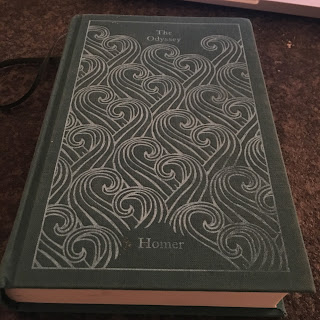A book full of interesting insights into conducting
and with many – and not the obvious ones – parallels to my day to day job as a
strategic planners.
“And so I found myself in front of the
orchestra, who were, it must be said, very kind.” (Boulez, 2002, p.5).
“Firstly, today’s conductors lack
culture. They are not familiar with the whole range of music, and they restrict
themselves to a limited repertoire. Secondly, they lack flair. They only rarely
seem to have a sense of discovery, only rarely have an intuition of what might
become really valuable. Thirdly, they do not know how to run an institution in
an artistic way.” (Boulez, 2002, p.16).
“He also gave advice to young conductors,
fairly sarcastic advice, saying, for instance, that it was not the conductor
who should sweat but the audience.” (Boulez, 2002, p.53).
“Personally, I tend to prefer a player
who has more potential to one who has already fulfilled that potential.”
(Boulez, 2002, p.74).
“I’ve noticed that it’s much more
difficult than I thought for musicians and scientists to rub shoulders with one
another. I’ve even fewer illusions on this subject than I had twenty-five years
ago.” (Boulez, 2002, p.83). “Peppino di
Giugno, who created the 4X processor, told me this about certain composers:
‘They are not satisfied, because they are not really aware of the possibilities
of the computer; it’s as if one were asking a violinist to have a hand with six
or seven fingers …’ It’s true that one often comes across this attitude with
musicians: they demand more, because they do not know how to use what exists.”
(Boulez, 2002, p.84).
“I know that the instrumental logic and
the interpretation of the performer differ from that of the computer, which in
itself has no capacity for interpretation.” (Boulez, 2002, p.87). “The
interpretation, the essential quality of the performer, the ability to make
choices, can only exist in the computer in a kind of phantom state.” (Boulez,
2002, p.89).
“Almost always when a difficulty in the
score proves itself to be insurmountable, it’s because there is an error both
in its conception and its notation. You cannot always blame the inadequacy of
the players. So you have to correct the score, not to make it easier, but more
effective – I repeat, effective.” (Boulez, 2002, p.115).
“The first fault you notice is that the
conductor is so preoccupied with himself that he doesn’t hear what is happening
– conducting is not just a question of giving initiatives but also of being
receptive to what the orchestra does. If there is not this reciprocity, a
conductor will fail.” (Boulez, 2002, p.127).
“I
think that composition per se cannot be taught. (…) Two or three days a year of
short, intense work (of teaching) are enough for me, because I think that the
students should be given shock treatment in respect of high standards. Those
students who are at this standard will be on a high, those who are not will
very probably go under. It’s really like playing double or quits! Fom this
point of view, I am very ‘Darwinian’. I think it is utterly useless dragging a
weight behind you which you know perfectly well will not reach the top of the
hill.” (Boulez, 2002, p.130).
“Education is no panacea, either. I mean
that it never supplies talent to those who have none; it can simply nourish
talent.” (Boulez, 2002, p134). “Teaching
is only a beginning; it is teaching yourself that is important. I have often
said it and I still think it: I much prefer those who chose to teach themselves
to those who ended up teaching themselves by chance. You can develop this wish
with someone who, later, might ‘hit you in the face’. That is perfect. He must
also kill the father.” (Boulez, 2002, p.135).
“I say: ‘This is what I have done, this
is what I have done, this is what others have done: find your way through
that.’ I ask for neither support nor a purely positive reaction. Reaction is
what is required. So much the better if the reaction is positive; likewise if
it is negative. I am a bad father. I am like Jean-Jacques Rousseau: if I had
had children, I would have put them in care, so that they might grow up by
themselves.” (Boulez, 2002, p.135).
“It made me more critical vis-à-vis the
connection between theoretical speculation and practical realization. I have
always been in favour of theoretical speculation, for it is that which carries
you forward. If you remain restricted by performance, you will never achieve
anything. (…) Invention is the wellspring, all the gestures and processes are a
consequence of it.” (Boulez, 2002, p.138).
“Whenever
I played my own works on the piano, and even more so when I conducted them, I
thought fairly early on about the sort of ‘result’ that would be effective. For
when one composes in too complex a manner, the performer inevitably
simplifies.” (Boulez, 2002, p.139). “the more complex the structure, the more you must link it to a simple
parameter. It is one of the permanent features with Wagner; if the leitmotifs
recur in a very obvious form, it is to put you back on track when you have lost
your way in the structure. The structure if Wagner’s operas is at times
excessively complex, and it is thanks to the leitmotivs that one can get one’s
bearings in an act that lasts two hours.” (Boulez, 2002, p.140).
“a work is not pure invention, it require
to be performed. Otherwise it is incomplete.” (Boulez, 2002, p.140).



